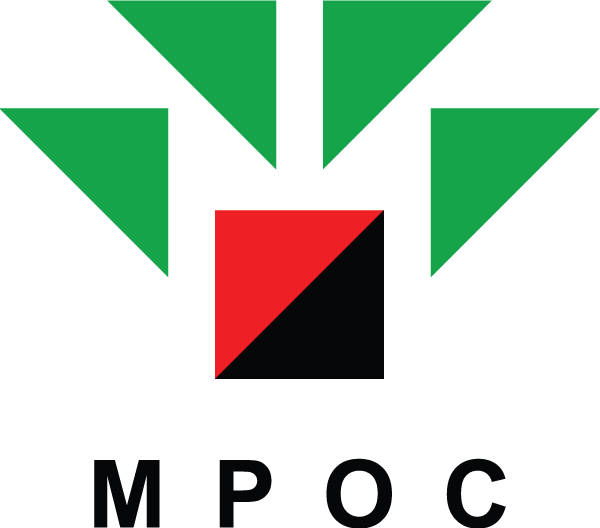
ORGANIZED BY:

POINTERS ON THE PRICE TRENDS:
EU Market for Palm Oil - Challenges and Opportunities

Mr. Paolo R Vergano
Mr. Paolo R. Vergano is a partner at FratiniVergano - European Lawyers in Brussels, Belgium and Singapore (www.fratinivergano.eu).
His practice focuses on international trade law (WTO law, dispute settlement and trade negotiation in the areas of agriculture, services and non-tariff barriers such as sanitary and phytosanitary measures and technical barriers to trade). Mr. Vergano has extensive experience in advising Governments and private parties on WTO matters and multilateral/regional/bilateral trade negotiations. He has actively participated in seven separate WTO dispute settlement proceedings and in countless EU proceedings (anti-dumping and countervailing duty investigations, duty suspension applications, TRQ establishment, etc.).
Since 2007, he is legal advisor to the ASEAN Secretariat and has worked in countless projects advising ASEAN in general and individual ASEAN Member States on issues of regional economic integration, regulatory transparency, streamlining of non-tariff measures (NTMs), removal of non-tariff barriers (NTBs), dispute settlement, trade negotiations, legal drafting, private sector engagement, and trade facilitation. Since 2012, he has been advising the palm oil industry with respect to issues of market access to the EU, both in relation to the food and biofuel applications of palm oil.
Prior to co-founding FratiniVergano in 2007, he worked in the international trade departments of law firms in both Washington, DC and Brussels, Belgium and with the External Economic Relations (REX) Committee of the European Parliament. Mr. Vergano is admitted in Belgium and is a member of the Brussels’ bar (A list) and of the IPBA, of which he is a former Chair of the International Trade Committee.
Mr. Vergano is a graduate of the Faculty of Law of the University of Torino, Italy (1995), received a Diplôme Supérieur de Droit Comparé at the Faculté Internationale de Droit Comparé in Strasbourg, France (1996) and holds a Master’s degree in International Business and Trade Law from the University of Fordham School of Law in New York, United States (1997). He teaches international trade law at the World Trade Institute in Bern, Switzerland since 2002, and international trade and food law at the LUISS University in Rome, Italy since 2017, and is a frequent lecturer and author on issues of WTO, EU and ASEAN law.
Since 2009, he is the Editor of FratiniVergano’s fortnightly publication Trade Perspectives©, (http://www.fratinivergano.eu/en/trade-perspectives/), regularly providing readers with a set of recent international trade developments of particular commercial and regulatory interest. Since 2011, Mr. Vergano is also on the Editorial Board of the Global Trade and Customs Journal.
VIEW PROFILE
The presentation will address the key issues in relation to the EU market for palm oil, highlighting challenges and opportunities through two lenses: 1) Public measures at the EU and EU Member States’ level; and 2) Initiatives and campaigns by private market operators.
A key recent development is the EU’s revised Renewable Energy Sources Directive, the so-called RED II, which called for criteria for the certification of low indirect land-use change-risk (low ILUC-risk) biofuels, bioliquids and biomass fuels and for determining the high indirect land-use change-risk (high ILUC-risk) feedstock for which a significant expansion of the production area into land with high-carbon stock is observed. Palm oil is the only biofuel feedstock that the EU considers to be a high ILUC-risk feedstock with the associated negative implications and bleak trade outlook. While not an outright ban, this restriction will inevitably alter the conditions of competition among feedstocks used to produce biofuels, discriminating against palm oil. The EU’s ILUC approach is, arguably, inconsistent with a number of WTO rules and agreements.
In recent times, the EU has also been working on its policy regarding forests and deforestation. In February 2020, the EU published the roadmap for a legislative initiative on ‘Minimising the risk of deforestation and forest degradation associated with products placed on the EU market’. The European Commission will consider a wide array of regulatory and non-regulatory policy options and notes that possible instruments could include mandatory labelling, voluntary commitments and labelling, due diligence, as well as verification schemes. A legislative proposal is expected in 2021.
The presentation will further discuss that palm oil might soon be subject to strict maximum levels for certain process contaminants in the EU. The EU is currently in the process of setting new maximum levels for 3-MCPD and its esters in vegetable oils. The Commission opted for a ‘split level’ approach, in which palm oil is subject to a higher maximum level of 3-MCPD than other vegetable oils. While the split maximum levels might raise unnecessary concerns by consumers, the higher maximum level for palm oil is important for the industry and the scientific reasoning behind this approach should be explained to consumers.
Negative campaigns intended to motivate consumers to reduce the use of palm oil, for its alleged negative environmental and/or nutritional implications, have been waged in the EU and within its Member States for years. The presentation details why ‘palm oil-free’ labels on products are arguably illegal under EU law. Misleading green claims, supposed to empower consumers to make sustainable food choices, appear to become a further ground to challenge ‘no palm oil’ labels. In 2024, the European Commission intends to publish a proposal for a sustainable food labelling framework. The presentation will also discuss front-of-pack nutrition labelling, some forms of which can be considered as discriminatory towards palm oil. The European Commission has announced a proposal for a harmonised mandatory nutrition labelling scheme enabling consumers to make informed and healthy food choices for the fourth quarter of 2022.
Finally, the presentation will address what the palm oil industry can and should do vis-à-vis these issues. The presentation will review the possibility of challenging discriminatory and illegal initiatives in Court or through administrative actions, assess the relevance of an internationally agreed standard for sustainable palm oil, and highlight the opportunities that the negotiation of preferential trade agreements provide in order to advance the palm oil industry’s interests.
A key recent development is the EU’s revised Renewable Energy Sources Directive, the so-called RED II, which called for criteria for the certification of low indirect land-use change-risk (low ILUC-risk) biofuels, bioliquids and biomass fuels and for determining the high indirect land-use change-risk (high ILUC-risk) feedstock for which a significant expansion of the production area into land with high-carbon stock is observed. Palm oil is the only biofuel feedstock that the EU considers to be a high ILUC-risk feedstock with the associated negative implications and bleak trade outlook. While not an outright ban, this restriction will inevitably alter the conditions of competition among feedstocks used to produce biofuels, discriminating against palm oil. The EU’s ILUC approach is, arguably, inconsistent with a number of WTO rules and agreements.
In recent times, the EU has also been working on its policy regarding forests and deforestation. In February 2020, the EU published the roadmap for a legislative initiative on ‘Minimising the risk of deforestation and forest degradation associated with products placed on the EU market’. The European Commission will consider a wide array of regulatory and non-regulatory policy options and notes that possible instruments could include mandatory labelling, voluntary commitments and labelling, due diligence, as well as verification schemes. A legislative proposal is expected in 2021.
The presentation will further discuss that palm oil might soon be subject to strict maximum levels for certain process contaminants in the EU. The EU is currently in the process of setting new maximum levels for 3-MCPD and its esters in vegetable oils. The Commission opted for a ‘split level’ approach, in which palm oil is subject to a higher maximum level of 3-MCPD than other vegetable oils. While the split maximum levels might raise unnecessary concerns by consumers, the higher maximum level for palm oil is important for the industry and the scientific reasoning behind this approach should be explained to consumers.
Negative campaigns intended to motivate consumers to reduce the use of palm oil, for its alleged negative environmental and/or nutritional implications, have been waged in the EU and within its Member States for years. The presentation details why ‘palm oil-free’ labels on products are arguably illegal under EU law. Misleading green claims, supposed to empower consumers to make sustainable food choices, appear to become a further ground to challenge ‘no palm oil’ labels. In 2024, the European Commission intends to publish a proposal for a sustainable food labelling framework. The presentation will also discuss front-of-pack nutrition labelling, some forms of which can be considered as discriminatory towards palm oil. The European Commission has announced a proposal for a harmonised mandatory nutrition labelling scheme enabling consumers to make informed and healthy food choices for the fourth quarter of 2022.
Finally, the presentation will address what the palm oil industry can and should do vis-à-vis these issues. The presentation will review the possibility of challenging discriminatory and illegal initiatives in Court or through administrative actions, assess the relevance of an internationally agreed standard for sustainable palm oil, and highlight the opportunities that the negotiation of preferential trade agreements provide in order to advance the palm oil industry’s interests.
REGISTER OR LOGIN TO VIEW FULL REPORT
REGISTER OR LOGIN TO VIEW PRESENTATION SLIDES
Questions & Answers
Please login to post comments.




